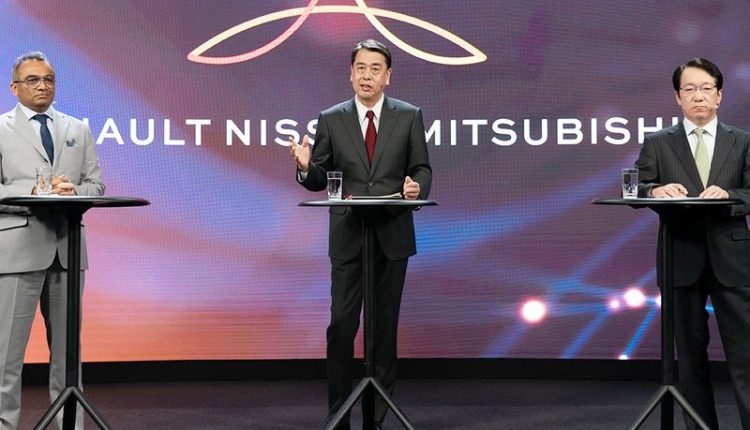“The strength of this alliance is increasing every day,” Senard asserted.
“Three years ago, the alliance was experiencing a crisis unprecedented in its history, based on a lack of trust,” Senard said. “This period belongs to the past. We have since then bounced back stronger and faster than even the most optimistic could have imagined.”
To underscore the point, the three automakers held a joint news conference to pitch their combined efforts. Headlining the push is the alliance’s investment in EVs over the next five years, funding 35 new battery-electrics due on roads by 2030.
The new strategy calls for achieving EV production capacity of 1.5 million vehicles a year by 2026 and a portfolio of five dedicated platforms for different segments, from minicars and entry-level offerings to crossovers and commercial vehicles.
Total battery production capacity is envisioned as reaching 220 gigawatt-hours by 2030, and for the first time, the alliance partners will mostly pull from the same battery supplier, Envision AESC.
Executives offered scant details on how the three companies will divvy up the investment. In the past, the Renault-Nissan partnership had aspired toward a 50-50 division on developing technology. But in practice, that arrangement made it difficult to reach agreement on projects and outlays, given differences between the companies’ size, volume, markets, customers and needs.
The dollar figure also may not impress compared with the huge sums some rivals are shelling out.
Toyota Motor Corp. said late last year it would introduce a lineup of 30 battery-electric vehicles by 2030 and invest some $35 billion in EVs from 2022 to 2030. General Motors, for its part, plans to spend around $35 billion on EVs and autonomous vehicles, with 30 EVs ready by 2025. And Ford Motor Co. has committed more than $30 billion toward EVs through 2025.


